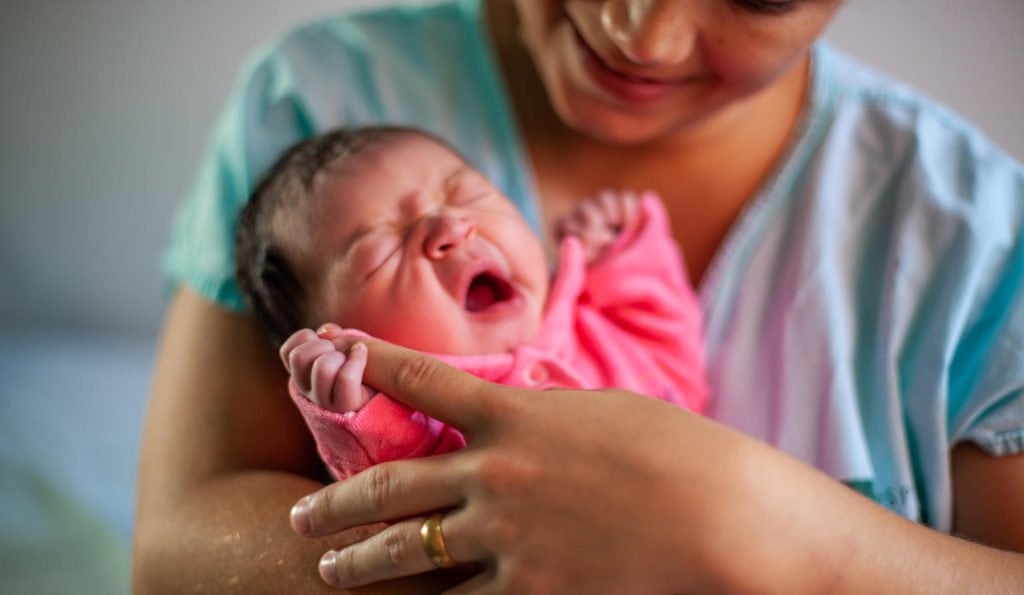
A good start in life begins in the womb
To grow a healthy baby, mothers need good nutrition and rest, adequate antenatal care and a clean environment. These ingredients for a healthy pregnancy can help prevent, identify and treat the conditions that cause low birthweight and keep babies alive and thriving.
A newborn’s weight at birth is an important marker of maternal and fetal health and nutrition. Low birthweight newborns have a higher risk of dying in the first 28 days of life. Those who survive are more likely to suffer from stunted growth[1] and lower IQ.[2] The consequences of low birthweight continue into adulthood, increasing the risk of adult-onset chronic conditions such as obesity and diabetes.[3]
Reducing low birthweight has long been recognized as a public health priority; and with the adoption of the Global Nutrition Targets in 2012, it is now a global commitment. During the 65th World Health Assembly (WHA), Member States endorsed the target of a 30 per cent reduction in low birthweight globally between 2012 and 2025. However, reporting on progress remains a challenge.
Improving data quality
Improving the quality and frequency of birthweight reporting is also critical to reducing the prevalence of low birthweight worldwide. Birthweight data were not available for nearly one third, or 39.7 million newborns in 2015 globally, with Africa accounting for over half of these. Strengthening national surveillance systems improves data collection and reporting on low birthweight, giving governments the power to set targets, develop effective programmes and monitor progress.
With robust data and sound programming to reach all mothers – particularly the most vulnerable – we can help more babies enter the world with a healthy weight and a brighter future.
Access the interactive dashboard
References
1 Christian P, et al. Black RE. Risk of childhood undernutrition related to small-for-gestational age and preterm birth in low- and middle-income countries. International Journal of Epidemiology 2013;42:1340–55.
2 Gu H, Wang L, Liu L, et al. A gradient relationship between low birth weight and IQ: A meta-analysis. Sci Rep. 2017;7(1):18035. Published 2017 Dec 21. doi:10.1038/s41598-017-18234-9
3 Jornayvaz FR, Vollenweider P, Bochud M, Mooser V, Waeber G, Marques-Vidal P. Low birth weight leads to obesity, diabetes and increased leptin levels in adults: the CoLaus study. Cardiovasc Diabetol. 2016; 15: 73.